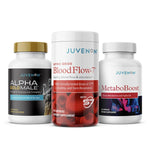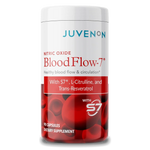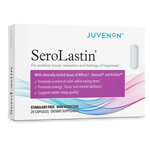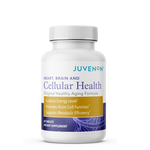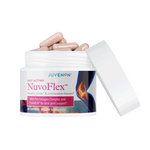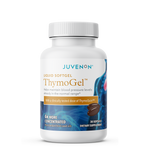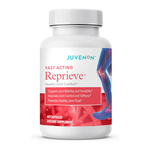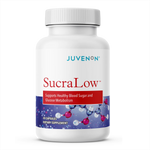
As we age, sleep becomes more important than ever — and quite possibly harder to attain. We may find it harder to stay asleep during the night, and find ourselves needing more naps during the day as we get older.
As we age, sleep becomes more important than ever — and quite possibly harder to attain. We may find it harder to stay asleep during the night, and find ourselves needing more naps during the day as we get older.
Sleep is a vital rest period that allows the body to process memories, recover from physical or mental stress, and heal and repair. Essentially, it’s the body’s “recovery mode.”
However, aging causes a number of changes to the way we sleep. Research studies have found that older adults sleep less during the night, require more daytime naps, wake more frequently during the night, and have less restorative slow wave sleep than their younger selves. [1]
However, older adults still require just as much sleep. According to the Centers for Disease Control and Prevention, adults up to age 60 need 7 or more hours of sleep per night, 61-64 year olds need 7-9 hours of sleep per night, and people 65 and older need 7-8 hours of sleep per night. [2] That’s where “sleep hygiene” comes in.
What is sleep hygiene?
Sleep hygiene refers to the factors in your control that can help improve your sleep. If you’re struggling to fall asleep or get enough sleep, implementing some of the changes below to improve your sleep hygiene may help you get the rest you need.
Good sleep hygiene means rethinking your routines and habits that lead to getting the right amount and quality of restorative sleep. Poor sleep hygiene includes habits that don’t serve you and yet are hard to break. Watching television late at night, drinking alcohol, eating a lot of refined and ultra-processed foods close to bedtime, consuming caffeine past 2 o’clock in the afternoon (or past 11 AM for more sensitive types), and exercising 2-3 hours before bedtime are just some poor habits you’ll want to rethink.
Knowing where to start can be hard. Making changes to our bedtime routine feels uncomfortable because for many of us, this is the first time all day we finally get to unwind. Below we’ll explore the core components necessary to building good sleep hygiene so you can get the best sleep possible and feel recovered the next day!
In this article, we’ll review:
- Several sleep hygiene strategies that may help you sleep better — like establishing a routine, improving your sleep environment, exercising regularly, spending time outside in the sunlight daily, and limiting the use of blue light-emitting devices,
- And how the supplement SeroLastin may help you relax and rest.
1. Build a routine
Routine is extremely important. For the best sleep, you should try to go to bed and wake up at the same time each and every day — including weekends. [3]
This helps regulate your Circadian rhythm, which controls the timing of wakefulness-promoting hormones and rest-promoting hormones. [4]
One way to help build this consistency is to have a set bedtime routine each night. Over time, your body will come to associate these habits with bed and you may find yourself starting to get sleepy as you begin this nightly routine. Some examples of habits you can include in your nightly routine are: oral care, skin care, setting your alarm, getting dressed for bed, and reading a book.
2. Create the right environment
In addition to sticking to a routine and having a consistent sleep schedule, creating an environment that’s conducive to sleep is extremely important.
For the best sleep, your room should be completely dark — so try to keep the TV off, keep the curtains closed, and unplug or power down devices that glow or light up.
Additionally, ambient noise like that of a fan can help you sleep better by drowning out background noises that may otherwise keep you asleep. If you don’t have a fan or if it would make you too cool, you can purchase an inexpensive sound machine or use your smartphone to play sleep sounds.
If you’re able, you may need to invest in a more comfortable and supportive mattress, blackout curtains, or a sleep mask to help create a better sleep environment.
3. Exercise
If you toss and turn for what seems like hours before you finally fall asleep each night, you may benefit from adding some vigorous exercise to your daily routine.
One review of studies found that adults over 40 who participated in a daily exercise program fell asleep more quickly each night than their counterparts who didn’t exercise. [5]
According to the Physical Activity Guidelines for Americans, we should aim for at least 150 minutes of moderate intensity exercise per week. With just 25 minutes per day, you can easily meet this goal — and you may fall asleep faster too. [6]
4. Spend time outside during the day and limit blue light at night

Blue light from the sun’s rays are one of the most significant regulators of Circadian rhythm. Unfortunately, digital devices like televisions,phones, tablets, and computers also emit blue light — and we typically spend much more time in front of blue light emitting devices than we do outside in the sun. [7]
It’s possible that blue light from these devices can disrupt your Circadian rhythm, which may contribute to sleep problems. This is especially true if you use digital devices at night. Melatonin, the “sleep hormone” is triggered by darkness, so blue light exposure may affect the timing of this hormone. [8]
The solution? Spend time outside in the sun each day. Open your blinds to let sunlight in each morning, or go for a brisk walk outside to get sunlight exposure and exercise in one. At night, try to limit your use of digital devices. Opt for a physical book instead of an ebook reader, turn on the blue light filtering settings on your phone, or use blue light blocking glasses.
Additionally, it’s a good idea to avoid all digital devices in the 30 minutes to one hour leading up to bedtime.
6. Take SeroLastin every day
One more strategy that may help you sleep better and feel more relaxed is to take SeroLastin, a supplement that was specifically designed by Juvenon to promote relaxation and restfulness.
Using several powerful ingredients, this blend may help boost your body’s ability to make serotonin, the “happy hormone” — which can help you feel more relaxed and less stressed. This could help you sleep better, especially if you have trouble getting to sleep because your mind races at night.
In fact, some research indicates that sleep disorders related to aging may be a result of declines in serotonin activity in the brain. Researchers have also noted that serotonin has beneficial effects on Circadian rhythm, promoting both sleep and wakefulness when you need them. [9]
Vitamin B6
Vitamin B6 is an essential nutrient that’s found in large amounts in animal foods like meat. It plays over 100 unique roles in the body, including regulating brain function. It’s a necessary part of the process that converts the amino acid tryptophan into serotonin. [10][11]
Folate
Like vitamin B6, folate is necessary for the production of serotonin. This essential nutrient is found naturally in many plant foods. [12]
However, most supplements contain a form of folate that is not well-absorbed by a significant chunk of the population with a mutation of the methylenetetrahydrofolate reductase (MTHFR) gene. SeroLastin contains 5-methyltetrahydrofolate, which is well-absorbed by people with and without this gene mutation. [13]
Vitamin B12
People take B12 supplements or receive B12 shots to help with their energy, but — paradoxically — vitamin B12 may help you relax, too. It is another nutrient that plays a role in serotonin production. [14]
Researchers have also found that your vitamin B12 status may affect how well you sleep, too. One small study found that people with the highest blood vitamin B12 levels reported better sleep quality, but more research is needed to fully flesh out these findings. [15]
Saffron
Saffron is a highly-prized medicinal herb with a long history of use in traditional herbal medicine. In fact, it is one of the single most expensive herbs money can buy.
Studies have shown that saffron can be equally as effective at boosting serotonin levels as a class of drugs called selective serotonin reuptake inhibitors (SSRIs). [16, 17]
Likewise, several recent studies and clinical trials have investigated the effect of saffron on sleep. Researchers have noted that a dose of 14 mg or more of saffron extract per day increases sleep time, reduces how long it takes to fall asleep, and improves sleep quality. [18][19][20]
What’s more, the type of saffron used in many of these trials — Affron — is the same type in SeroLastin. And, SeroLastin contains a clinically effective dose of 28 mg of Affron per serving.
Ashwagandha
The herb Ashwagandha — used traditionally in Indian herbal medicine — is an adaptogen. It helps your body to adapt better to stressors.
Researchers have found that it also helps to promote relaxation and improve sleep quality. Several high-quality studies have illustrated the link between ashwagandha and improved sleep. [21, 22, 23]
Studies showed results with 120 mg of ashwagandha, and SeroLastin contains 125 mg of ashwagandha per serving.
Alpinia galanga root
A. galanga is a close relative of ginger. It has been shown in animal studies to improve brain function and reduce mental fatigue. The addition of A. galanga in SeroLastin may help you to be more productive and energized during the day, so you can rest easy at night. [24]
Takeaway
Sleep changes as we age, but unfortunately sleep requirements do not. If you’re having trouble getting to sleep or feeling rested after you wake up, making some tweaks to your sleep hygiene may help you get the restorative sleep you need.
Try to go to bed and wake up at the same time each night, and build a bedtime routine so that your body knows when it’s time to sleep. Likewise, make sure you have a comfortable, dark, and quiet sleep environment.
Exercise has been shown to help reduce how long it takes to fall asleep in older adults, so it’s also a good idea to include exercise in your daily routine. It also provides numerous other health benefits.
Additionally, spending time outdoors and limiting digital blue light at night can help to regulate your Circadian rhythm.
Finally, Juvenon’s SeroLastin can help give you a natural serotonin boost so you feel more relaxed and so sleep comes easier. Although some age-related sleep changes may be out of your control, there are many things you can do to make sure you’re getting the rest you need to stay healthy and live your fullest life possible.
References
- Li J, Vitiello MV, Gooneratne NS. Sleep in Normal Aging. Sleep Med Clin. 2018;13(1):1-11. doi:10.1016/j.jsmc.2017.09.001
- Centers for Disease Control and Prevention. How much sleep do I need? Accessed June 15, 2022. Retrieved from https://www.cdc.gov/sleep/about_sleep/how_much_sleep.html
- Centers for Disease Control and Prevention. Tips for better sleep. Accessed June 15, 2022. Retrieved from https://www.cdc.gov/sleep/about_sleep/sleep_hygiene.html
- Kim MJ, Lee JH, Duffy JF. Circadian Rhythm Sleep Disorders. J Clin Outcomes Manag. 2013;20(11):513-528.
- Yang PY, Ho KH, Chen HC, Chien MY. Exercise training improves sleep quality in middle-aged and older adults with sleep problems: a systematic review. J Physiother. 2012;58(3):157-163. doi:10.1016/S1836-9553(12)70106-6
- Department of Health and Human Services. Physical Activity Guidelines for Americans, 2nd edition. Accessed June 15, 2022. Retrieved from https://health.gov/sites/default/files/2019-09/Physical_Activity_Guidelines_2nd_edition.pdf
- Wahl S, Engelhardt M, Schaupp P, Lappe C, Ivanov IV. The inner clock-Blue light sets the human rhythm. J Biophotonics. 2019;12(12):e201900102. doi:10.1002/jbio.201900102
- West KE, Jablonski MR, Warfield B, et al. Blue light from light-emitting diodes elicits a dose-dependent suppression of melatonin in humans. J Appl Physiol (1985). 2011;110(3):619-626. doi:10.1152/japplphysiol.01413.2009
- Melancon MO, Lorrain D, Dionne IJ. Exercise and sleep in aging: emphasis on serotonin. Pathol Biol (Paris). 2014;62(5):276-283. doi:10.1016/j.patbio.2014.07.004
- Shabbir F, Patel A, Mattison C, et al. Effect of diet on serotonergic neurotransmission in depression. Neurochem Int. 2013;62(3):324-329. doi:10.1016/j.neuint.2012.12.014
- National Institutes of Health. Vitamin B6 Fact Sheet for Health Professionals. Accessed June 16, 2022. Retrieved from https://ods.od.nih.gov/factsheets/VitaminB6-HealthProfessional/
- Miller AL. The methylation, neurotransmitter, and antioxidant connections between folate and depression. Altern Med Rev. 2008;13(3):216-226.
- Scaglione F, Panzavolta G. Folate, folic acid and 5-methyltetrahydrofolate are not the same thing. Xenobiotica. 2014;44(5):480-488. doi:10.3109/00498254.2013.845705
- Türksoy N, Bilici R, Yalçıner A, et al. Vitamin B12, folate, and homocysteine levels in patients with obsessive-compulsive disorder. Neuropsychiatr Dis Treat. 2014;10:1671-1675. Published 2014 Sep 9. doi:10.2147/NDT.S67668
- Al-Musharaf S, Alabdulaaly A, Bin Mujalli H, et al. Sleep Quality Is Associated with Vitamin B12 Status in Female Arab Students. Int J Environ Res Public Health. 2021;18(9):4548. Published 2021 Apr 25. doi:10.3390/ijerph18094548
- Talaei A, Hassanpour Moghadam M, Sajadi Tabassi SA, Mohajeri SA. Crocin, the main active saffron constituent, as an adjunctive treatment in major depressive disorder: a randomized, double-blind, placebo-controlled, pilot clinical trial. J Affect Disord. 2015;174:51-56. doi:10.1016/j.jad.2014.11.035
- Ahmadpanah M, Ramezanshams F, Ghaleiha A, Akhondzadeh S, Sadeghi Bahmani D, Brand S. Crocus Sativus L. (saffron) versus sertraline on symptoms of depression among older people with major depressive disorders-a double-blind, randomized intervention study. Psychiatry Res. 2019;282:112613. doi:10.1016/j.psychres.2019.112613
- Pachikian BD, Copine S, Suchareau M, Deldicque L. Effects of Saffron Extract on Sleep Quality: A Randomized Double-Blind Controlled Clinical Trial. Nutrients. 2021;13(5):1473. Published 2021 Apr 27. dLopresti AL, Smith SJ, Drummond PD. An investigation into an evening intake of a saffron extract (affron®) on sleep quality, cortisol, and melatonin concentrations in adults with poor sleep: a randomised, double-blind, placebo-controlled, multi-dose study. Sleep Med. 2021;86:7-18. doi:10.1016/j.sleep.2021.08.001oi:10.3390/nu13051473
- Lopresti AL, Smith SJ, Metse AP, Drummond PD. Effects of saffron on sleep quality in healthy adults with self-reported poor sleep: a randomized, double-blind, placebo-controlled trial. J Clin Sleep Med. 2020;16(6):937-947. doi:10.5664/jcsm.8376
- Pachikian BD, Copine S, Suchareau M, Deldicque L. Effects of Saffron Extract on Sleep Quality: A Randomized Double-Blind Controlled Clinical Trial. Nutrients. 2021;13(5):1473. Published 2021 Apr 27. doi:10.3390/nu13051473
- Langade D, Thakare V, Kanchi S, Kelgane S. Clinical evaluation of the pharmacological impact of ashwagandha root extract on sleep in healthy volunteers and insomnia patients: A double-blind, randomized, parallel-group, placebo-controlled study. J Ethnopharmacol. 2021;264:113276. doi:10.1016/j.jep.2020.113276
- Cheah KL, Norhayati MN, Husniati Yaacob L, Abdul Rahman R. Effect of Ashwagandha (Withania somnifera) extract on sleep: A systematic review and meta-analysis. PLoS One. 2021;16(9):e0257843. Published 2021 Sep 24. doi:10.1371/journal.pone.0257843
- Deshpande A, Irani N, Balkrishnan R, Benny IR. A randomized, double blind, placebo controlled study to evaluate the effects of ashwagandha (Withania somnifera) extract on sleep quality in healthy adults. Sleep Med. 2020;72:28-36. doi:10.1016/j.sleep.2020.03.012
- Saha S, Banerjee S. Central nervous system stimulant actions of Alpinia galanga (L.) rhizome: a preliminary study. Indian J Exp Biol. 2013;51(10):828-832.

